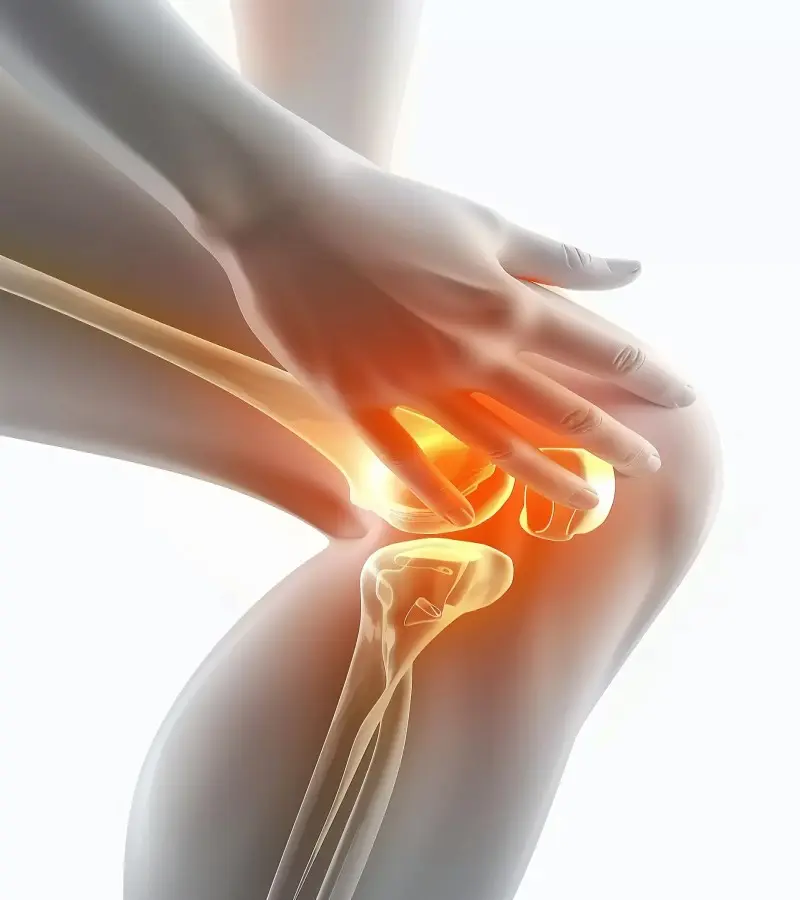The only MedSpa in Colorado backed by Medical Doctor, Anesthesiologist & 2022 Physician of the Year, Dr. Jan Gillespie.
The only MedSpa in Colorado backed by Medical Doctor, Anesthesiologist & 2022 Physician of the Year, Dr. Jan Gillespie.
Living with a chronic pain condition such as Complex Regional Pain Syndrome (CRPS), previously known as Reflex Sympathetic Dystrophy (RSD), can profoundly affect your daily life, impacting both your career and personal relationships. At NoCo MedSpa & IV Therapy in Greeley, our dedicated team offers ketamine IV infusion therapy to enhance neural function, alleviate pain, and reduce other symptoms. Call us or schedule your appointment online today to start your journey toward relief.
What is CRPS/RSD?
Complex Regional Pain Syndrome (CRPS), formerly known as Reflex Sympathetic Dystrophy (RSD), is a debilitating disease affecting the autonomic and sympathetic nervous systems. It results in persistent, severe pain that is disproportionate to the initial injury. CRPS can manifest a range of symptoms, including:
There are two types of CRPS:
How is CRPS/RSD Treated?
At NoCo MedSpa & IV Therapy, our Anesthesiologist-Anesthetist team specializes in ketamine IV infusion therapy to manage chronic pain conditions. Ketamine works by interacting with neurons to enhance brain function and alleviate neurological pain. Many patients experience significant and lasting pain relief with regular booster treatments following the initial series of ketamine infusions.
What Happens During Ketamine IV Treatment for CRPS/RSD?
Our treatment process begins with an extensive consultation by an Anesthesiologist/Anesthetist to determine if ketamine IV infusion therapy is suitable for reducing your pain and improving your overall well-being.
The treatment regimen varies but typically includes:
During your IV infusion sessions, our Anesthesiologist/Anesthetist closely monitors you to ensure all protocols and best practice standards are met, ensuring both your safety and the effectiveness of the treatment.
If you are interested in learning more about how ketamine IV infusion therapy can help manage your chronic pain, contact us today to schedule an appointment. At NoCo MedSpa & IV Therapy, we also offer ketamine treatments for depression and other conditions in Greeley, Colorado. Call or book your appointment online now.
High Pain Levels: CRPS is often considered one of the most painful chronic conditions, ranking higher than childbirth, amputation, and cancer pain on the McGill Pain Index.
Rare but Severe: Although CRPS is a relatively rare condition, affecting approximately 200,000 people in the United States annually, its impact on quality of life can be profound and life-altering.
Misdiagnosis is Common: Due to its complex nature and a wide array of symptoms, CRPS is frequently misdiagnosed, leading to delays in appropriate treatment and management.
Triggers Vary: CRPS can be triggered by various injuries or illnesses, from minor fractures and sprains to surgical procedures and even heart attacks.
Temperature Sensitivity: One hallmark of CRPS is extreme sensitivity to temperature changes. Affected areas can feel disproportionately hot or cold compared to the rest of the body.
Skin Changes: CRPS can cause dramatic changes in skin texture and color. Skin may become shiny and thin or take on a mottled appearance, often accompanied by unusual sweating patterns.
Psychological Impact: The chronic pain and disability associated with CRPS can lead to significant psychological distress, including anxiety, depression, and difficulties with concentration and memory.
Early Treatment is Crucial: Early intervention is key to preventing the progression of CRPS. Prompt and effective treatment can significantly improve outcomes and quality of life.
Multidisciplinary Approach: Managing CRPS often requires a multidisciplinary approach, including pain management specialists, physical therapists, and psychologists to address the wide-ranging effects of the condition.
Innovative Therapies: Treatments such as ketamine IV infusion therapy are providing new hope for CRPS patients, offering significant pain relief and improved neural function when traditional therapies fall short.
